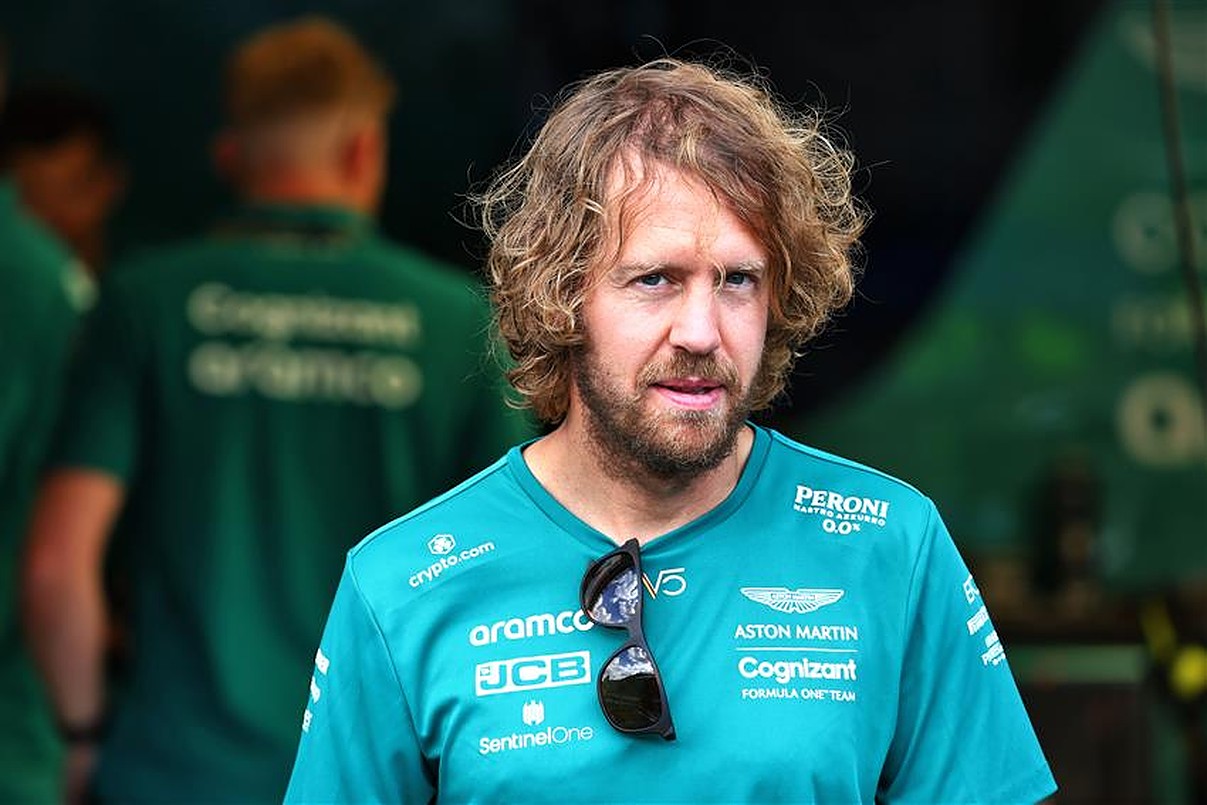Sebastian Vettel is without a doubt one of the greatest and most successful Formula 1 drivers in the history of the sport, but is he also one of the most disrespected?
The German is a legend in many people’s eyes for multiple reasons, with his on-track records being just one of them.
Vettel has been a leading figure in making the sport change for the better, with the championship continuing to be particularly harmful to the environment.
Despite currently racing for Aston Martin, whose title partner just so happens to be a Saudi Arabian state-owned oil company, Vettel has continued to use his voice to slam the sports unforgivable carbon footprint and overall carbon emissions.

READ: Max Verstappen’s manager makes big Charles Leclerc prediction
It does appear, though, that a lot of what he does goes under the radar, with the 35-year-old expecting himself that it won’t take long for him to be forgotten once he retires at the end of the season.
A Twitter user has actually expressed their opinion that the German is “by far the most disrespected driver” not just on the current grid, but in the “history” of the sport.
The user wrote: “I think it’s a good time to say Vettel is by far the most disrespected driver in F1 history. No driver gets the amount of relentless dismissal of his achievements and slander he gets from the media.”
Vettel has been labelled a “hypocrite” more times than comprehensively countable, with many arguing that the German has no right to complain about environmental issues, whilst racing for a team partnered with one of the world’s largest polluters (Aramco).
Focusing on his on-track performances for a moment, Vettel is a four-time World Champion who enjoyed one of the most dominant eras the sport has ever seen.
Only three drivers have claimed more Drivers’ Championships than the German, whilst only two have achieved more victories.
His 53-Grand Prix victories place him above every driver in the history of the sport, other than Lewis Hamilton and Michael Schumacher.
Vettel also holds the record for most wins in a single season alongside Schumacher, after claiming 13 wins in the 2013 season.
Vettel also holds a joint record with Alberto Ascari for most wins in a row, something he also matched in 2013 after winning at a staggering nine consecutive races.
2013 was realistically the last year of Vettel’s dominance, with his partnership with Ferrari having never led to a title.
It can be argued that had it not been for strategic and driver errors, then Vettel may have added to his four titles; however, perfection was the only way of beating Mercedes and Hamilton.
His on-track records do seem to get forgotten about, perhaps due to having achieved them in the same era as Hamilton, who alongside Max Verstappen, is the most spoken about driver on the grid.
Vettel’s move to Aston Martin in 2021 is also another reason for this, potentially, as the German has reverted to being a midfield competitor, rather than a race winner, much to his dissatisfaction.
A lot of his focus has switched to global issues off the circuit, which has seen the German become somewhat of an activist in support of doing something about environmental and climate change.
The German has demonstrated his support of various campaigns and communities through words and action, most notably at Middle Eastern races where he races with a LGBT-themed helmet.
READ: Ex-F1 champion aims dig at FIA over anti-US system
He also appeared as a guest speaker on BBC political programme ‘Question Time’, where, despite being asked some ridiculously difficult questions, the German represented himself and the sport impeccably.
Vettel never hides the fact that he’s part of the climate problem by racing in F1; however, he’s used his voice and knowledge to suggest ways that the sport can tackle these issues whilst continuing to grow.
Vettel’s impact on F1 will most likely not be fully recognised until he’s left the sport, where it’ll remain to be seen who will take up the German’s spot as a figure to challenge F1 and the FIA over dealing with increasing global issues.

